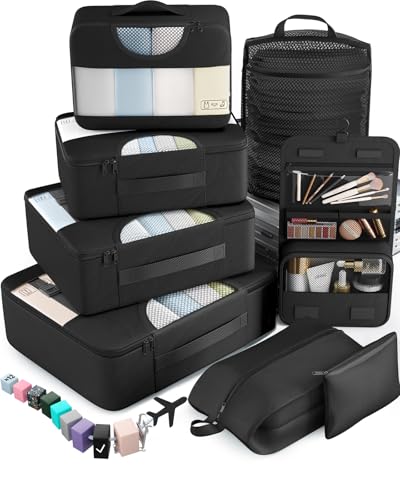In Mombasa, they use Type G power plugs and outlets. The voltage is 240V, and the frequency is 50Hz.
⚠️ So, you’ll need a travel adapter in Mombasa. Their plugs and outlets are different from the Type A and B ones we use back in the States.
Quick Overview of the Plugs in Mombasa:
- Plug type in Mombasa: G
- Standard voltage: 240V
- Frequency: 50Hz
- Need a travel adapter? Yes, you do need a travel adapter
- Need a voltage converter? Some gadgets will probably need it
- Recommended plug adapter: One Beat Travel Plug Adapter
Every fact on this page is backed by local power authority guidelines, global IEC standards, and personal accounts from travelers who’ve experienced it firsthand.
Power Outlets in Mombasa
In Mombasa, they use Type G power plugs and outlets.
Type G

Type G outlets have three rectangular prongs in a triangular layout and built-in fuses. Other plug types won’t fit without an adapter.
The Only Travel Adapter You’ll Need in Mombasa
I’ve been there—arriving in a new country and realizing my charger is useless. We don’t sell travel adapters, but we’ve done the hard work to find the best one for Mombasa. Safe, reliable, and built for the trip. Here it is:
Recommended Travel Plug Adapter
by 2,000+ travelers on Amazon
Already traveling or at your destination with no power adapter? You can usually pick one up at the airport or in a local store. Still, bringing your own is a smarter move—it ensures compatibility and saves you from last-minute errands.
Mombasa travelers frequently include stops in Uganda, Ethiopia, or Tanzania. Always check if you’ll need a different adapter.
Do You Need a Voltage Converter?
If you’re traveling to Mombasa, you’ll probably need a voltage converter. The U.S. uses 120V, but the voltage in Mombasa is different, meaning your electronics won’t work safely without one.
Always make sure to check the input voltage label on your device before using it overseas. If it states “100-240V, 50/60 Hz”, your device supports multiple power systems and won’t need a converter. Most phones, laptops, tablets, and personal care electronics fall into this category.

Which Travel Devices May Need a Converter?
Looking for a solid voltage converter? These highly rated options are a good place to start.
| Device | Need Converter? | Notes |
|---|---|---|
| Phone | ❌ No (usually) | Most modern phone chargers are dual voltage (100–240V) |
| Laptop | ❌ No (usually) | Check the power brick label for 100–240V |
| Hairdryer | ✅ Yes (often) | High wattage; many models are not dual voltage |
| Electric toothbrush | ⚠️ Check voltage | Some models are 110V only |
| Camera / DSLR | ❌ No (usually) | Most chargers are dual voltage |
| Power bank | ❌ No | Charges via USB, adapter is enough |
| Electric shaver / trimmer | ⚠️ Check voltage | Older or cheaper models may not support 230V |
| Tablet / iPad | ❌ No | All models are dual voltage |
| Portable fan | ✅ Yes (sometimes) | Many models are not compatible with 230V |
| Game console | ⚠️ Check voltage | Newer consoles like PS5 and Xbox are often dual voltage — check to be sure |
| Bluetooth speaker | ❌ No (usually) | Charges via USB |
| E-reader (Kindle, etc.) | ❌ No | USB charging only, no converter needed |
Top Travel Essentials to Pack
Some items are worth their spot in your bag. These travel-friendly tools are small, light, and surprisingly useful.
Digital Luggage Scale
Packing Cubes
Power Bank
No products found.
More About Mombasa
Mombasa is Kenya’s historic port city on the Indian Ocean, built across a small island and the mainland—sometimes called “the white and blue city.” The population is around 1.3 million and the vibe here feels like marble-white beaches, spice-scented markets, and centuries-old Old Town architecture. Don’t miss Fort Jesus, a UNESCO World Heritage fortress built by the Portuguese in the late 1500s, which today houses a museum tracing Swahili and colonial history.
One of Mombasa’s most iconic landmarks is the Mombasa Tusks, four aluminum tusks forming an “M” over Moi Avenue—originally erected in the 1950s to mark a royal visit. Walk through Old Town with its Swahili, Arab, Indian and Portuguese influences, then head to Nyali or Bamburi beaches to unwind. Water sports, coral reef snorkeling, dhow tours, and seafood cafés line the coast—ideal for relaxing after a day of exploring.
Mombasa also celebrates taarab, bango, and chakacha music – coastal genres that pulse along with local life and nightlife. The city’s port links East Africa to the wider ocean world, and Moi International Airport puts international arrivals just minutes from the beach. Compared to Nairobi, Mombasa feels like a blend of laid-back seaside life and genuine cultural depth—not polished, but full of character.
Mombasa uses the same plugs and outlets as the rest of Kenya.



